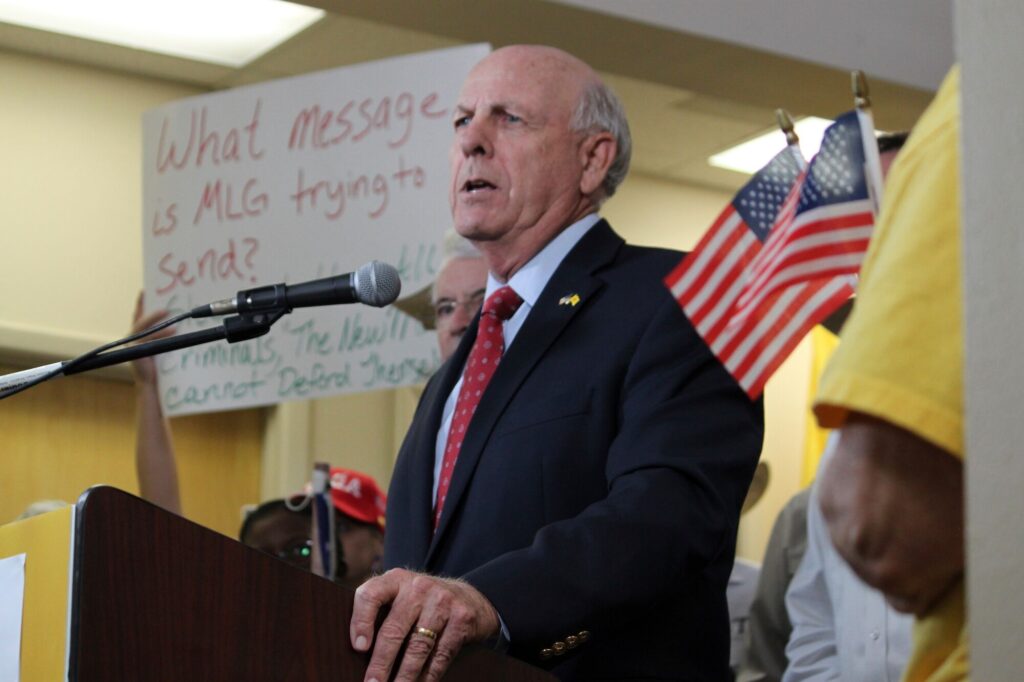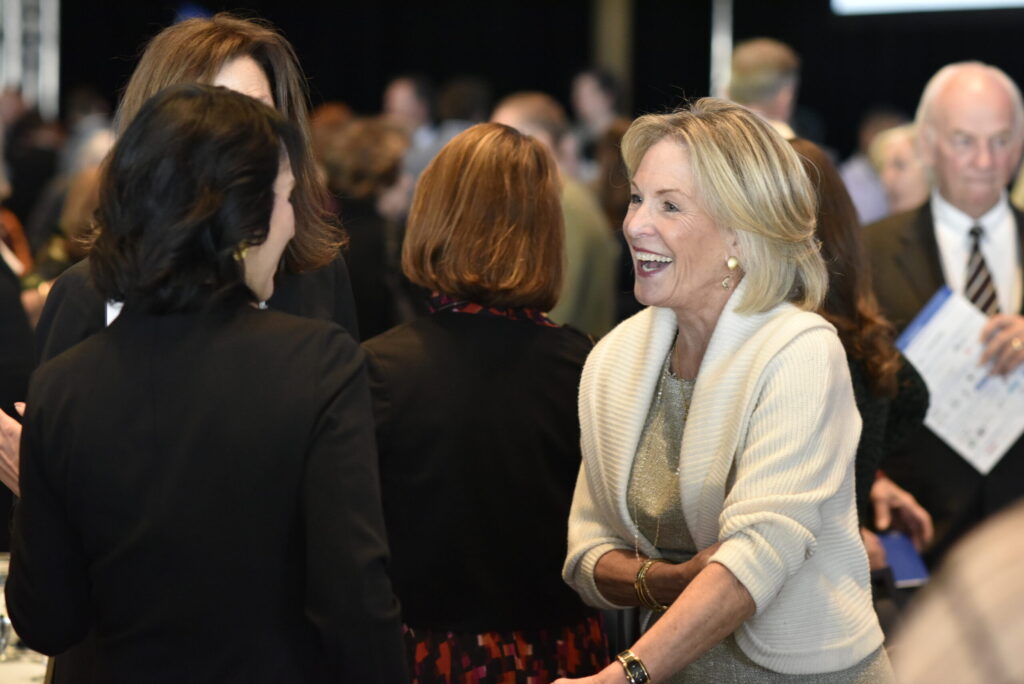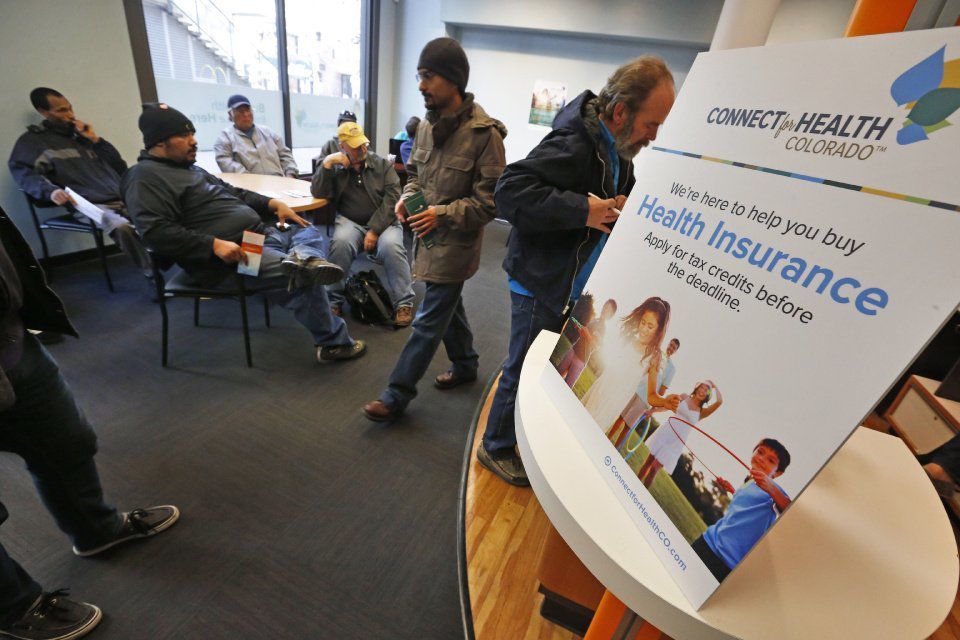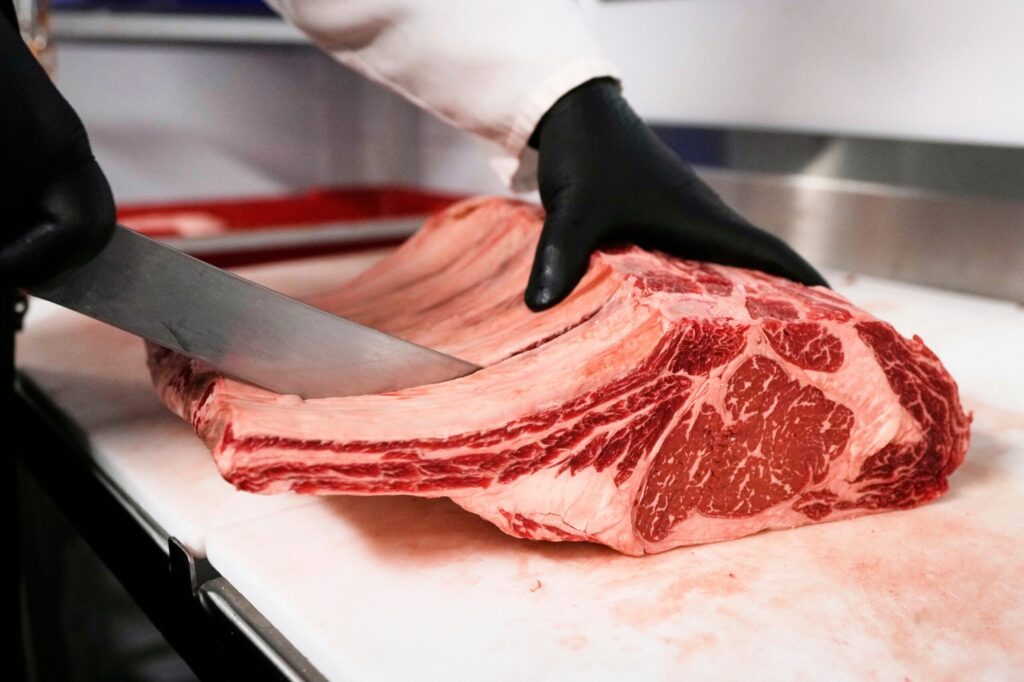Q&A with Sen. Stephen Fenberg | Senate majority leader looks forward to year ahead
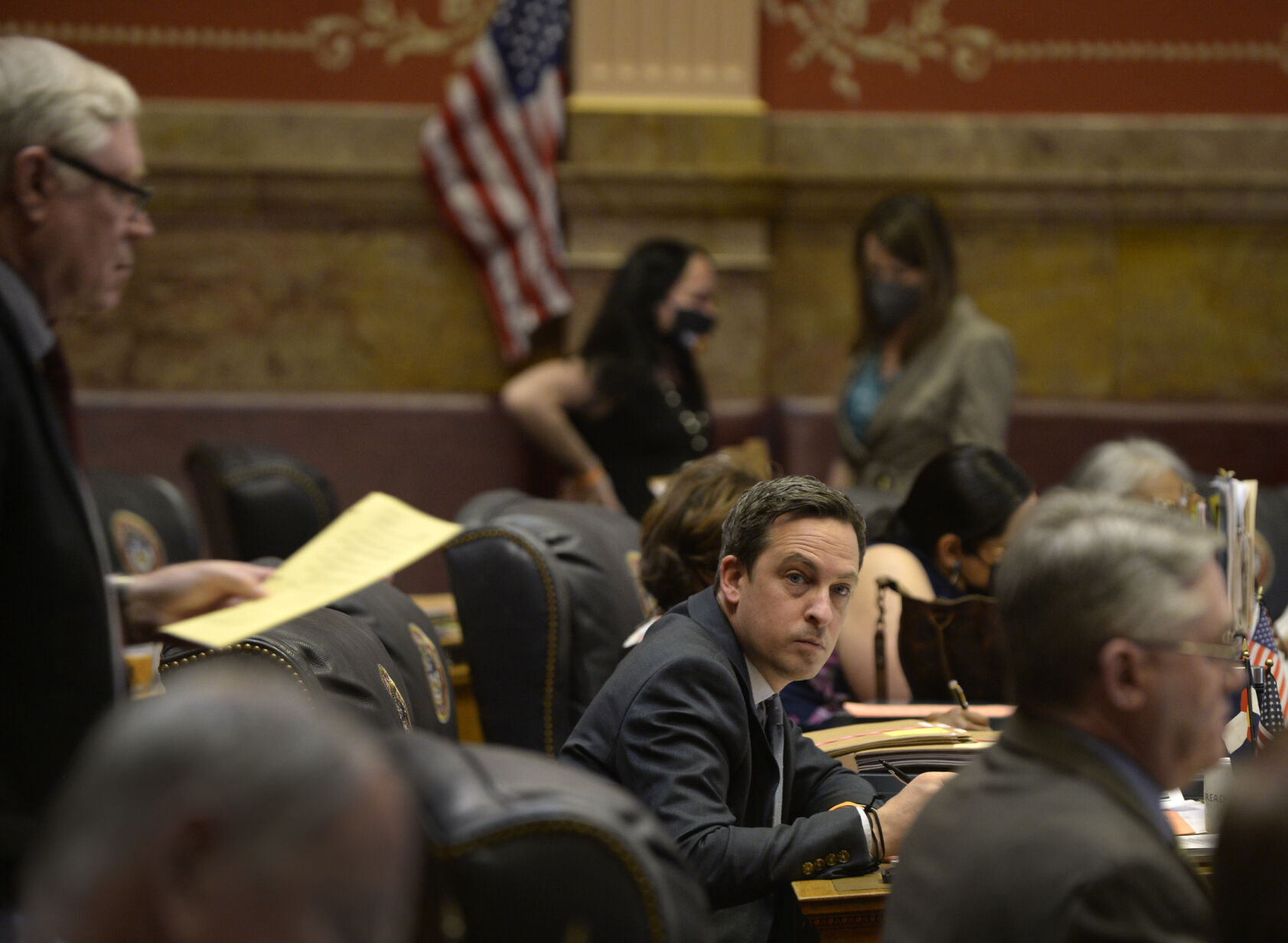
Sen. Stephen Fenberg, a Democrat who has represented a Boulder-area district in Colorado’s state Senate since 2017, is considered the hands-down favorite to become Senate president next year if Democrats maintain majority control.
He has served as the Senate majority leader since 2019, being chosen for the prestigious position less than two years into his term.
From 2017 to 2021, Fenberg was the prime sponsor of 102 bills, 73 of which were signed into law. Last session, 22 out of his 23 bills were signed into law. This session, Fenberg is a member of the Legislative Council and the Executive Committee of the Legislative Council, and he is currently the prime sponsor of three bills regarding insurance coverage for fire-related losses, the implementation of fertility coverage and requirements for boards and commissions.
Before his time in office, Fenberg founded New Era Colorado in 2006 with other future political heavyweights, including Rep. Leslie Herod, D-Denver, and U.S. Rep. Joe Neguse, D-Lafayette. The nonprofit has registered nearly 200,000 young voters over the last 15 years. Fenberg graduated from the University of Colorado Boulder in 2006 with a bachelor’s degree in environmental policy.
Fenberg sat down with Colorado Politics Thursday to discuss the upcoming year, from the 2022 legislative session to the work ahead healing the Boulder County community following last year’s tragedies.
Colorado Politics: Where do you see the legislature going this session?
Fenberg: We are going to be focused on a handful of issues that both sides of the aisle have said are very important. I think, in many ways, we actually have a lot of agreement on how to get there. Then in other areas, there is disagreement and that’s where the debate will be. It’s not whether the goal is valid or a priority, but what is the best way to accomplish that goal.
This session is, I wouldn’t say it’s off to a slow start, but it’s stable and it has been relatively focused on the issues ahead of us – whether it’s the Housing Task Force, the Behavioral Health Task Force or some of the other important issues that have come up – rather than political drama. And I think that’s a good thing for the people of Colorado. There’s going to be some drama, there’s no question. It wouldn’t be a legislative session without it. But I think this session is going to be headed in the direction of having good, robust debate about really important issues to Coloradans.
CP: You mentioned the Affordable Housing Task Force and the Behavioral Health Task Force. As you know, they released their recommendations for federal aid spending on Monday. Do any of the recommendations stand out to you? Is there anything you’re especially interested in?
Fenberg: They’re all incredibly important. I think overall, we learned that this is an immense amount of money, but the problems that we are faced with are probably much greater than what that money can solve. I think we knew that of going into it, but as we dug into the details, it became more and more clear.
On the housing side of things, the Revolving Loan Fund is really important because this is one-time money. The more we can make sure the money doesn’t just get spent and it’s over, but that it can live on past its initial spend, is really important. That is what’s compelling about that recommendation.
I also think there’s a lot in the Behavioral Health Task Force recommendations that, again, they’re not going to solve a problem overnight, but it is the root cause of so many other problems that we discuss down here. Whether it’s crime and public safety or substance abuse, we really need to tackle root causes more often, and I think that task force is doing that. A lot of those recommendations get at making sure there are beds for people in crisis, making sure that, when they’re not in crisis but still need assistance and help, there are opportunities for them. I’m excited about all of it, but those are the highlights for me.
CP: The recommendations include spending roughly $1 billion in federal aid. Is there anywhere you would like to see that money go the most? Any portion of the state or specific population you would like to target?
Fenberg: At the end of the day, this is money to help us get through the COVID time. We need to make sure the money is helping those who were most impacted by this crisis. We know we had behavioral health system issues before the crisis, we had affordable housing issues before the crisis. These investments do need to go into making structural systemic change that impacts the whole state, but I think we need to also ensure that this money is going towards folks who are not recovering like the rest of the population, who are disproportionately impacted – whether it’s economically or health wise – and really make sure that we’re not leaving people behind in the recovery.
CP: With the election coming up this November, what do you think the prospects are that Democrats retain control of the state Senate?
Fenberg: Uh, 100%.
CP: You think so?
Fenberg: Yes. No. Look, it’s going to be a difficult election. The national climate is obviously challenging. The climate in general in this country is challenging because of all the very serious issues that are facing us. At the end of the day, it does seem like, with the virus surge getting reduced, there is an opportunity here for us to press reset and make sure we’re focused on the issues that are really impacting Coloradans. There’s no question it’s going to be a challenging election. I don’t think anyone is ignoring that or pretending otherwise. We need to make the case that we have righted the ship and we have really helped Colorado get through this period as Democrats.
There’s a lot that we’ve accomplished, a lot of things that we’ve delivered for Colorado families. Whether it’s full-day kindergarten or preschool, or the things that we put in place that are starting to bring down healthcare costs, or our work on public lands and making sure that we are being responsible as a state as we think about the climate crisis and how it’s going to impact the next generation. These are big, meaty issues that we’ve been tackling over the last few years, not to mention working on the public health response and the fact that we’ve had a pandemic on our hands. I think we need to tell that story better and talk about what’s to come and what we can still do with Democrats in control of the state Senate. I think we can make that case, partially through the legislation and the work that we’re going to do this session. We’re also going to make that case at the doorsteps and out there in the campaign forum.
I’m confident that we will keep the majority. I really am, and I think there’s going to be a long path between now and that election day. We just need to make the case, and Coloradans, at the end of the day, generally do support the policies that come from our party and the items that we’ve accomplished over the last few years.
CP: Speaking of elections, you’ve got just a few more years left in your term. What’s next for you after your time in the state Senate?
Fenberg: I don’t know. I’ll never say never, that I wouldn’t run for something again. But I don’t have a grand plan. I’m not planning on running for something next. I’m not making every decision and taking every step based on whether it’s good for my political career. Some people do and that’s fine, but I don’t have a master plan because, at the end of the day, I never really thought I would be in elected office. I never had that, necessarily, in my plans. Here I am, and I have the honor of serving as the majority leader in the state Senate. At the end of the day, I want to make sure I’m using that power and that authority and responsibility to accomplish what I think is important for the state.
That probably sounds like a BS answer from a politician, but genuinely I don’t have a plan. I don’t know what’s next. I know I want to be of service and stay in public service. I also do things on the side that are unrelated to my work here, and that’s what keeps me sane. Maybe I’ll do a little bit more of that side of my life and a little bit less of the political world. But I don’t think there’s a world where I leave the political stuff entirely. I don’t know if it’ll be running for office, but I think I’ll still be working in this field.
CP: Have you ever thought about running for Congress?
Fenberg: I’ve thought about it, yeah. I think the real question is – is that the life that I want for myself and my family? And, how do I feel about being in D.C. a lot? We get things done and we work together here in Colorado at the legislature. I don’t know if I can say the same thing about Washington, D.C. So, we’ll see. I wouldn’t say never. Politics is all about timing and opportunity and when windows open. But it’s definitely not something I am planning for. We’ll see what happens.
CP: Narrowing in on Boulder County, it’s been over a month since the Marshall fire. Have you noticed any gaps in helping the people of Louisville and Superior to rebuild?
Fenberg: Yes, although it’s hard to identify gaps because it’s still so early. We know there are challenges, whether it’s navigating the insurance industry, navigating FEMA or simply finding a safe place to live – because there’s already a housing shortage and now we’re a thousand or so homes less. I don’t know if “gaps” is the right way to think about it, it’s more that there are immense challenges. There are things we could have done differently to be better prepared. I’m thinking a lot about that in terms of, what can we do to be better prepared for the next disaster? Unfortunately, we know this isn’t the last time something like this is going to happen. Natural disasters that are, I would argue climate-induced, are going to continue to be a part of our lives.
So, what can we do to make communities more prepared so that they can bounce back faster? And so, when these disasters happen, they’re less destructive? All kinds of needs and challenges are still out there. I think it’s going to be years before real rebuilding occurs. The last few weeks have been about removing debris. We’re still in that stage. There is still burned-down wreckage everywhere, and it’s going to take time to remove that and then figure out how to remediate the spaces so they’re safe to even think about rebuilding. Right now, there’s a lot of toxins in the soil and in the materials around there. There’s a long road ahead. We are working behind the scenes and making sure the insurance industry is being a good actor in working with these families. But there’s no question that we need to be better prepared for these types of disasters in the future.
CP: What would that preparedness look like for you?
Fenberg: It could be different things. It could be when it comes to emergency response. Our first responders did an amazing job and they put themselves in harm’s way. I genuinely feel like there’s not much we could have done differently that would’ve stopped this fire from spreading, it was such a windy day and the fire was so ferocious. But there probably are improvements we can make to the emergency response system when it comes to the reverse 9-1-1 calls and things like that. We’re looking into that piece of it.
There’s also how can small cities and towns be better prepared for when this does occur? The community of Superior is not a sophisticated city operation that ever thought it would need to respond to such a disaster. How do we provide technical assistance to these communities to be better prepared for when this happens? How do we ensure that we are thinking more about land use, so that brush fires don’t turn into mega fires that destroy a thousand homes? How do we think about resilience when it comes to when we are rebuilding? How do we rebuild in a way that we’re not just creating more fuel for the next fire? We’re rebuilding with fire resistant materials and thinking about energy codes and building codes, so that when this happens, you don’t have a fire spread within minutes across entire neighborhoods. I think those are the conversations we need to have. They’re difficult. People don’t want to be told how to build their home, and I get it. There’s a local control aspect here.
We’re clearly dealing with a different animal now. This is something that impacts all of us, impacts the entire state when you see a thousand houses go up in flames. It’s something that we need to take a real good look at and talk to the experts that can tell us what we can, as a state, do differently to be better prepared.
CP: You mentioned housing shortages following the fire. One of the big issues that has come up is price gouging, especially with rental housing. Price gouging during declared disasters was outlawed with House Bill 1414 in 2020, but it doesn’t include rentals. Do you have any intention of addressing that?
Fenberg: Folks are looking at that. We are having conversations with the Boulder County Delegation, the governor’s office and the local governments, of course, to really get a sense of what the problem is. Is there legislation that could help that problem, either for people now or for the next disaster? We’re still looking into it, but I think there are gaps in our policies and people, unfortunately, take advantage. But it’s still to be determined if there’s a legislative fix there.
CP: Another tragedy that struck Boulder County last year was the King Soopers shooting in March. How has the community recovered since the shooting and how have you recovered as an individual?
Fenberg: It feels like it was just yesterday in a lot of ways. The store is reopening next week. They did a remodel, interior and exterior, and there’s going to be some elements to the reopening in the space around it to honor what happened there. It feels like it was yesterday. It also feels like it was a lifetime ago. It’s sad that it happened and it was in the news and then we all kind of just moved on. But I’m really proud of how the community responded, whether it’s donations or being there for the victims and their families. I’m proud of how the store responded and how they took care of their folks.
It was an incredibly horrible disaster that impacted everybody in the Boulder community. I shopped at that store. My wife teaches middle school basically right behind it, and that’s where they go for lunch breaks. It’s something that touched everybody in the community. There’s no question. It’s hard to imagine that this store is just now reopening and, at the end of the day, it’s going to be something that sticks with the Boulder community forever. We have learned from it, we’ve grown from it, we’ve gotten closer because of it. But it doesn’t take anything away from the horrible tragedy that happened.
CP: Will you shop at the store again when it reopens next week?
Fenberg: Yeah, of course. We have to figure out how to bounce back and not live in fear. And, at the same time, do that while honoring the victims and the lives that were lost. So yes, of course. I’m excited to go there on Wednesday when it reopens.
FAST FACTS
Age? 38
Family? Married to wife, Lindsay, and has a 2-year-old daughter, Isa.
Lessons you’ve learned from being a new father? Patience. We were reading a book together last night at the dinner table and she paused and then, all of a sudden, my lap got very warm and I realized that she peed on me. And you know, it’s okay, it’s fine. Sometimes you got to get peed on and not worry about it. Maybe there’s an analogy there about my work in the Senate.
John Elway or Peyton Manning, who should get ownership of the Broncos? Because I think bipartisanship is important, I think they should share ownership.
Favorite Boulder restaurant? I have a lot of favorite restaurants in Boulder. I think probably my go-to is the Mountain Sun. It’s right down the street from my house. It’s hamburgers and it’s a brewery and the beer is some of the best in the state.
Something about you most people don’t know? I’ve recently gotten into woodworking. I recently built a dining table and a bed frame. That was kind of my COVID hobby that I picked up.




